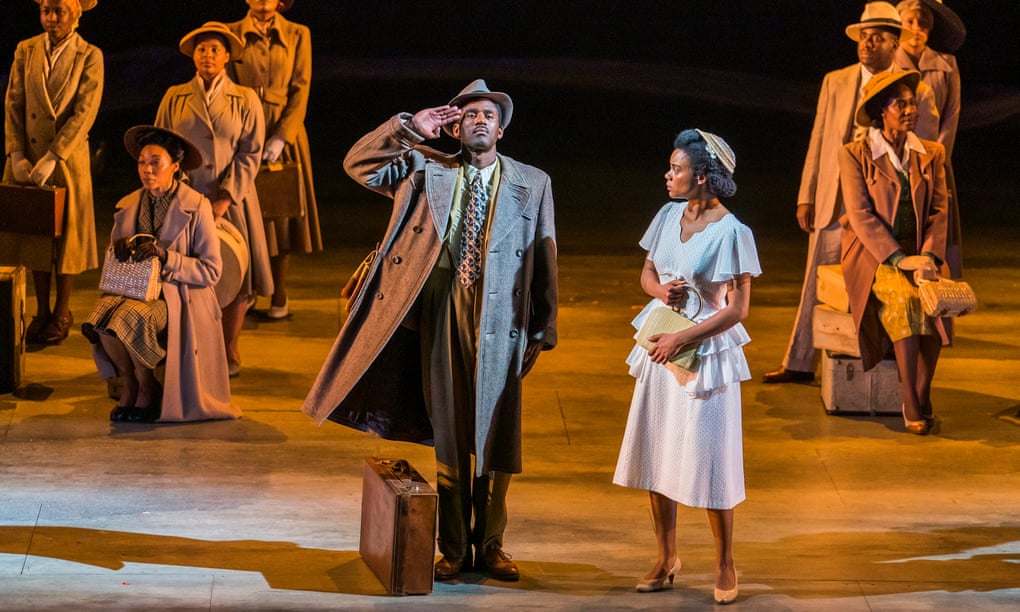When Andrea Levy’s novel Small Island was released in 2004, it immediately received praise for its portrayal of race relations in the UK and the adversity faced by the Windrush generation upon their arrival from Jamaica. It’s a powerful novel and, as one would hope, Helen Edmundson’s 2019 stage adaptation does Levy’s novel justice, delivering a theatrical tour-de-force alongside excellent performances and sharp writing.
Small Island follows the intersecting lives of three individuals as they encounter each other at various turns during the Second World War before circumstance leads them to all live under a shared roof in London. All three characters are wonderfully realised: Gershwyn Eustache Jnr is excellent as Gilbert with his humorous streak and admirable dreams of becoming a lawyer immediately winning over the audience; Leah Harvey wonderfully balances Hortense’s (justifiably) cold exterior with moments of warm sincerity, and it’s hard not to feel for her as she struggles to come to terms with life in London; and Aisling Loftus’ sarcastic observations and dry wit as Queenie – mixed with genuine tragedy – are wonderful.
All three lead actors display incredible comic timing through their asides and expressive reactions. Hortense’s silent disgust at Gilbert’s London flat is deafening as it rings through the Olivier Theatre. Likewise, Queenie’s swift and sharp dialogue is so natural that the casual nature of her racist remarks never feel starkly out of place alongside her ordinarily friendly demeanour. While not as overt as other characters – including her detestable husband Bernard (Andrew Rothney) – it remains noticeable, highlighting the microaggressions that the Windrush generation experienced, and their descendants still experience to this day.
The high standard of the performances is true for the supporting cast as well, especially David Fielder as Bernard’s shell-shocked father Arthur whose physicality captures an array of emotions despite him being mostly mute. The humour captured is a testament to Edmundon’s script and Rufus Norris’ direction. The comedy itself is initially jarring, and it doesn’t seem like this is the sort of adaptation that should contain as much comedy as it does. Yet by the same merit it makes the moments of abject tragedy and horrendous racial abuse that Hortense and Gilbert suffer all the more stark in contrast.
The Olivier’s vast stage is utilised magnificently, with even the smallest addition of a chalkboard, table and some chairs transforming it radically. While the revolving stage is used sparingly in the first act, its use in the second is excellently managed; perfectly juxtaposing the radically different environments that the characters live in despite all being under the same roof. While at once feeling small and claustrophobic, the stage is immediately capable of immense proportions, delivering an epic sense of grandeur as Gilbert ascends to board the Empire Windrush. It is an overwhelmingly powerful moment that is both terrifying and inspiring, delivering a feeling to the audience that is likely only a fragment of what those who initially came to Britain must have experienced.
Small Island is a wonderful piece of theatre that is brimming with humour, tragedy and heartfelt emotion – emotions that are made all the more powerful in the wake of the Windrush scandal. It’s importance in conveying a significant yet overshadowed moment in British history cannot be understated.
Small Island is available on YouTube until the 25th June here
